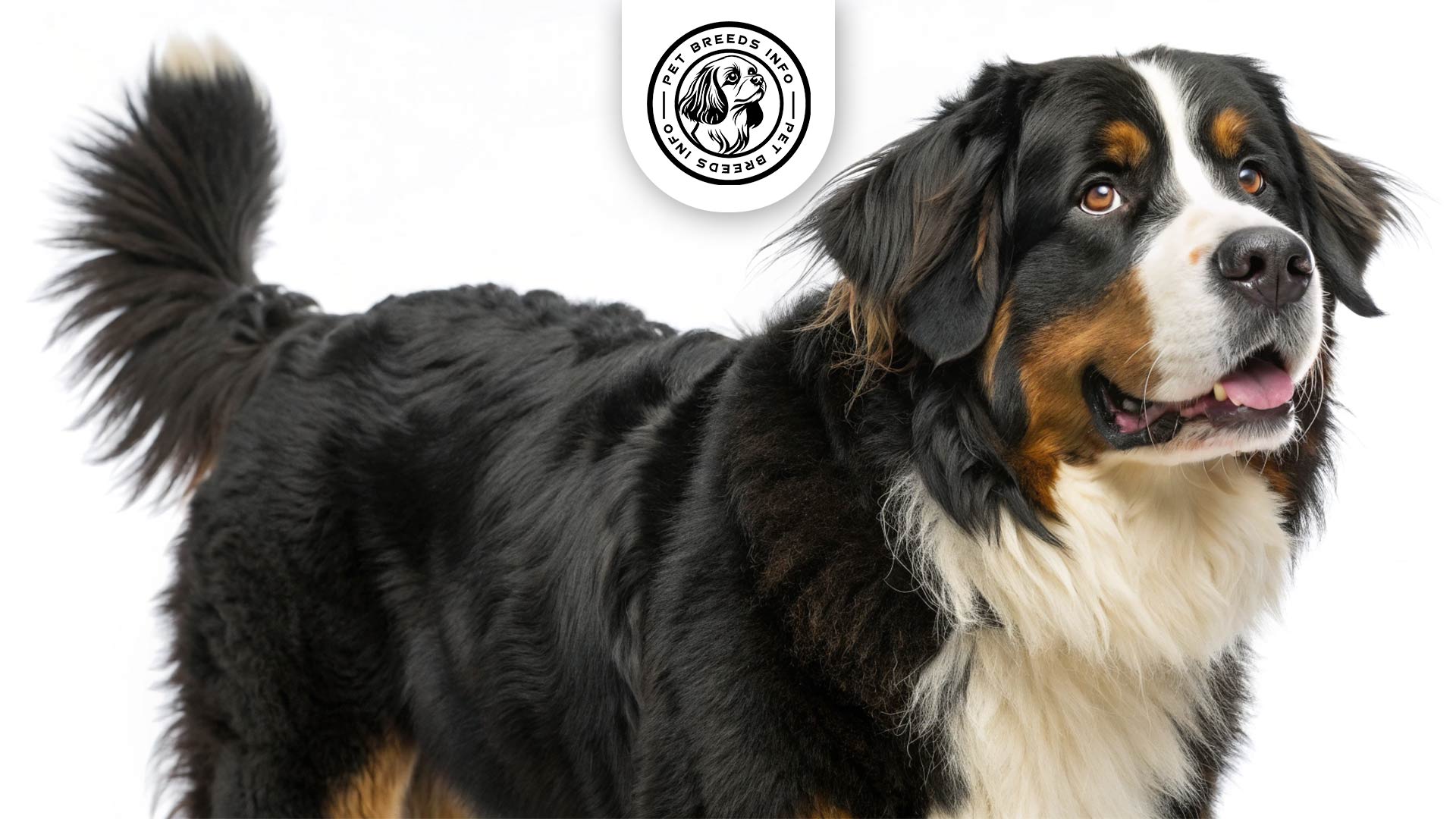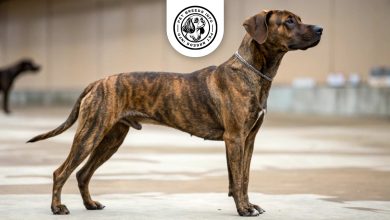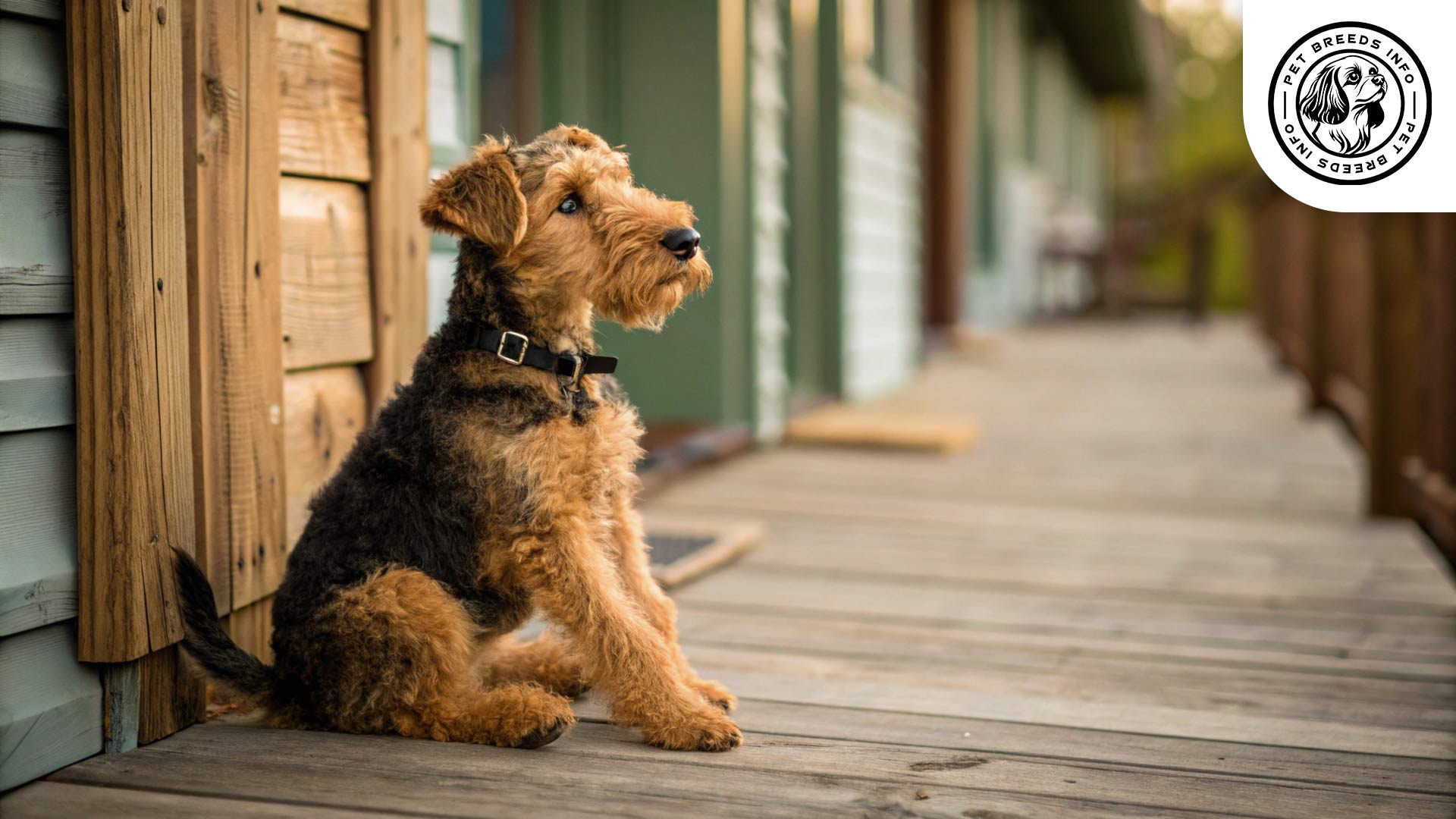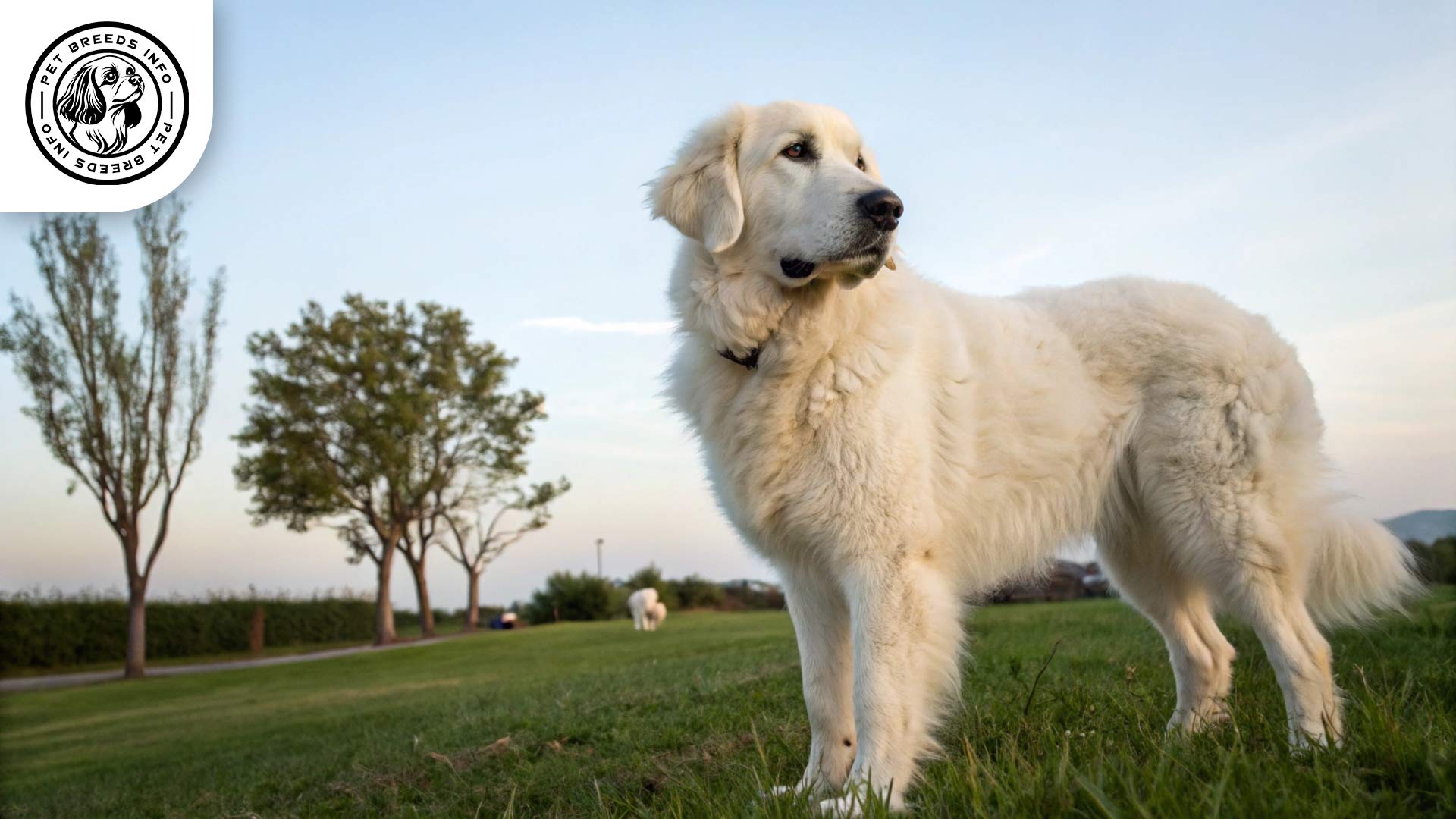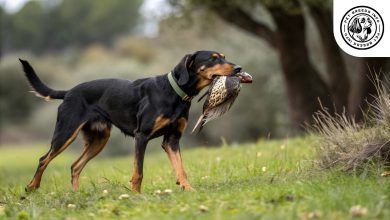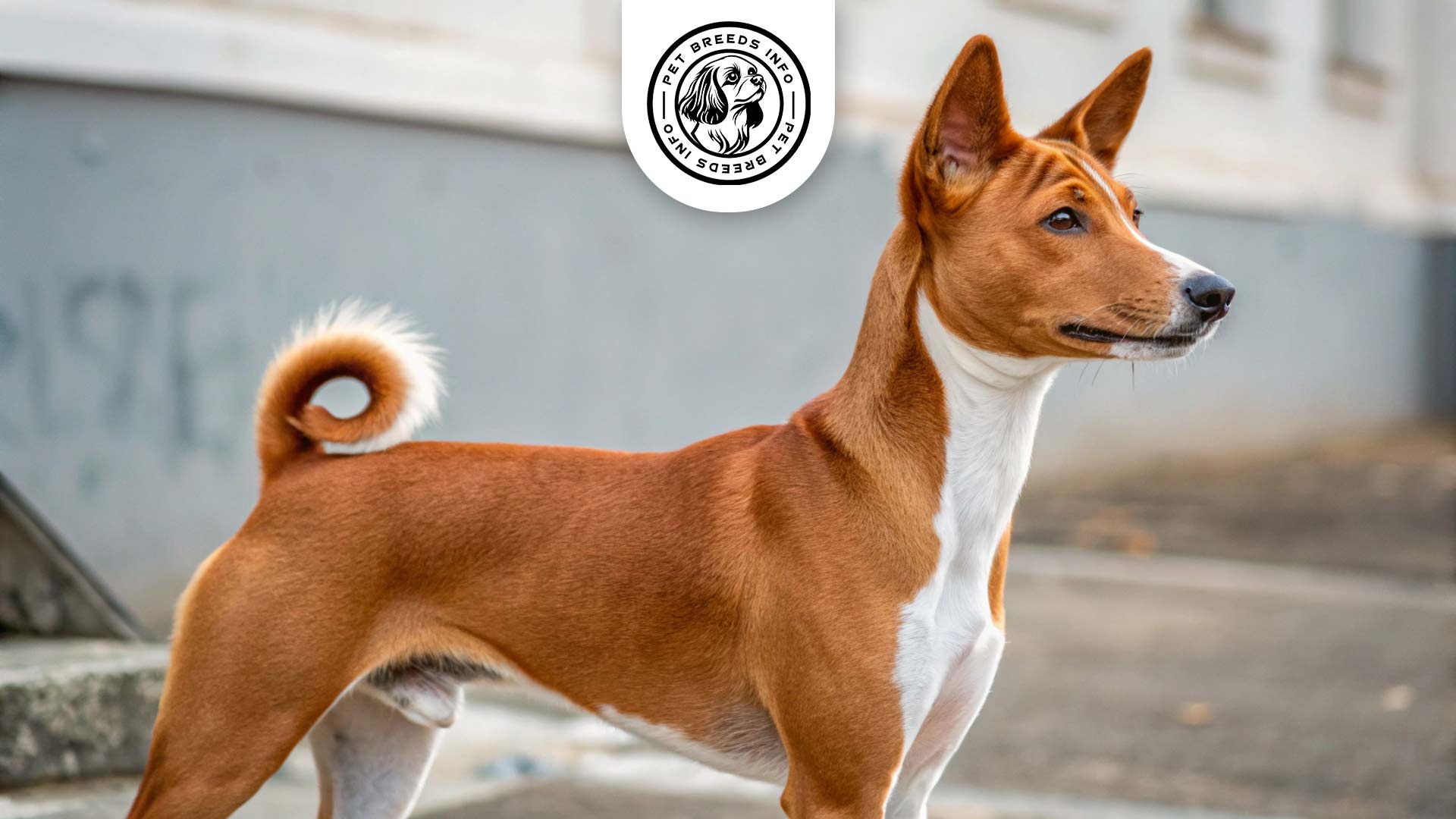Bernese Mountain Dog Breed: Size, Price & Personality
General Introduction of the Breed
The Bernese Mountain Dog, known as “Berner Sennenhund” in German, is a large working dog breed originating from Switzerland. It is one of the four Swiss Mountain Dogs and is recognizable by its long, tri-colored coat. Originally developed as a farm dog in the Swiss Alps, it was used for herding cattle, pulling carts, and serving as a loyal companion to farmers. Over time, this breed gained popularity as a loving family pet thanks to its affectionate nature and striking appearance.
Table of Contents
| Weight | Males: 80-115 lbs Females: 70-95 lbs |
| Lifespan | 7-10 years |
| Diet | High-quality, protein-rich. Portion control. |
| Care | Daily exercise, regular brushing, nail/ear/dental care. Cooler climates preferred. |
| Health | Prone to hip/elbow dysplasia, PRA, heart issues, cancer. Regular vet checks needed. |
| Color | Tri-color: Black, rust, and white markings. |
| Nature | Intelligent, affectionate, loyal, gentle, friendly. Good with kids and generally other pets (with socialization). |
| Price | Puppy: $1,500-$3,500. Adoption possible at lower cost. |
Physical Characteristics
The Bernese Mountain Dog is a large breed, with males typically weighing between 80 to 115 pounds (36 to 52 kg) and standing 25 to 27.5 inches (64 to 70 cm) tall at the shoulder. Females are slightly smaller, weighing 70 to 95 pounds (32 to 43 kg) and standing 23 to 26 inches (58 to 66 cm) tall.
The breed has a thick, double-layered coat that is long and slightly wavy or straight. It features a striking tri-color pattern: black as the base color, with symmetrical rust and white markings on the chest, face, and paws.
Bernese Mountain Dogs have dark brown, almond-shaped eyes that give them a gentle and friendly expression. Their ears are medium-sized, triangular, and slightly rounded at the tips, set high on the head. The tail is long and bushy, hanging down naturally when at rest and slightly raised when alert.
Distinctive traits of the breed include its large paws, which aid in navigating snowy terrains, and a sturdy build that showcases its strength and endurance.
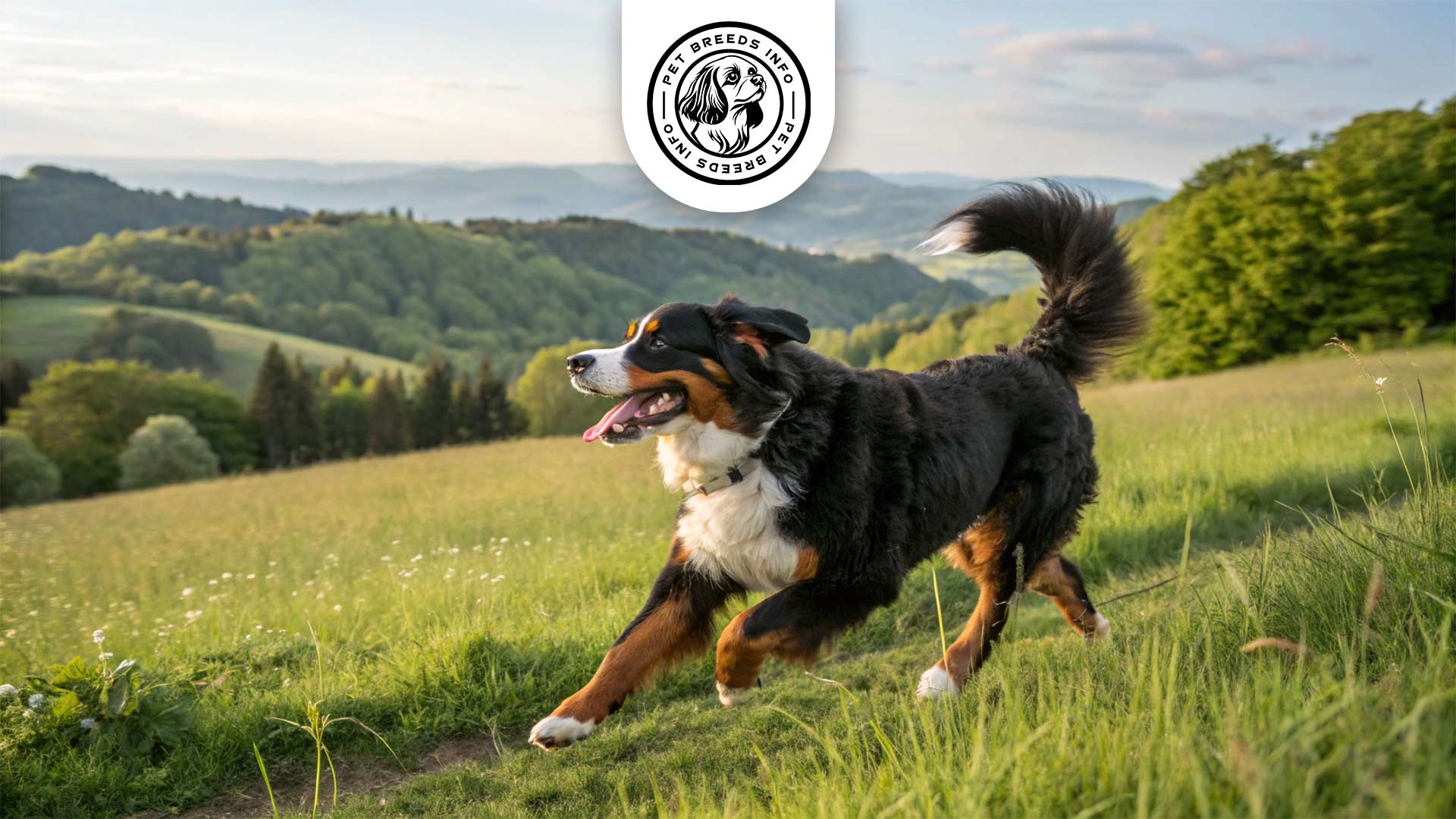
Personality and Temperament
The Bernese Mountain Dog is intelligent and eager to learn, making training relatively easy with consistency and positive reinforcement. It has a calm and affectionate temperament, forming strong bonds with its family.
This breed has a moderate to high energy level and requires regular exercise. It enjoys outdoor activities such as hiking, pulling carts, and playing in open spaces.
Berners are incredibly loyal and devoted to their owners, thriving on companionship. They are known for being gentle and friendly, making them excellent with children. They generally get along well with other pets, but early socialization is recommended.
Although not known for hunting instincts, they are playful and love engaging in games. They are sensitive to changes in their environment and can be affected by stress or sudden disruptions in routine.
Read More: Belgian Malinois Dog
Care and Maintenance Requirements
Bernese Mountain Dogs require daily exercise to maintain their health and prevent weight gain. A large yard or access to open spaces is ideal, but they can adapt to various living environments if they receive enough activity.
This breed sheds heavily, especially during seasonal transitions. Regular brushing, at least two to three times a week, helps maintain coat health and reduce shedding. Bathing should be done as needed, while nail trimming, ear cleaning, and dental care should be part of a regular hygiene routine.
Bernese Mountain Dogs are better suited for cooler climates due to their thick coats. They can struggle in hot and humid conditions, so adequate shade, water, and exercise restrictions during warm weather are essential.
Diet and Nutrition
A high-quality, protein-rich diet is recommended for Bernese Mountain Dogs. A combination of dry kibble, wet food, raw, or home-cooked meals can be considered. Consultation with a veterinarian helps determine the best nutrition plan.
Foods to avoid include chocolate, grapes, onions, and excessive fatty or processed foods. Portion control is important to prevent obesity, with most adult dogs requiring two meals per day.
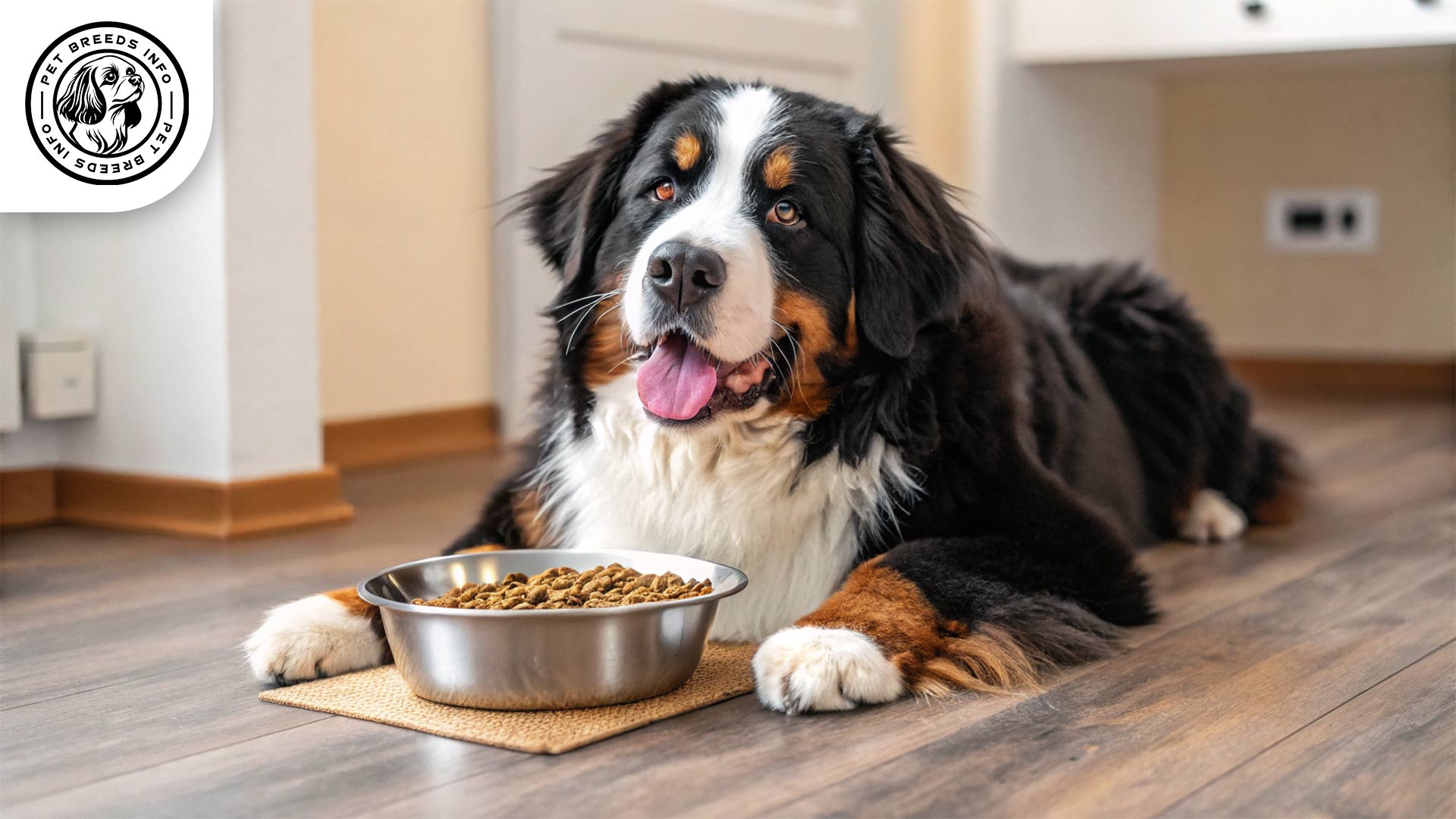
Health and Common Medical Issues
Bernese Mountain Dogs are prone to several genetic health conditions, including hip and elbow dysplasia, progressive retinal atrophy, and heart diseases. They also have a higher risk of cancer compared to some other breeds.
The breed’s average lifespan ranges from 7 to 10 years. Regular veterinary checkups, vaccinations, and preventive care are essential for maintaining their health.
Training and Behavior Management
Bernese Mountain Dogs are intelligent and willing to learn, making them relatively easy to train. Consistent training with positive reinforcement techniques, such as treats and praise, yields the best results.
Early socialization helps reduce shyness or anxiety in new situations. Basic commands, leash training, and house training should start from puppyhood.
Reinforcing good behavior with rewards and avoiding harsh training methods ensures a well-mannered and obedient dog.
Read More: Belgian Tervuren Dog
Interaction with Other Animals and Humans
Berners are excellent with children due to their gentle and affectionate nature. They are patient and protective, making them great family dogs.
They usually get along well with other pets, including dogs and cats, especially if raised together. However, proper socialization is necessary for a well-balanced temperament.
This breed thrives in family environments but can also do well with individuals who provide enough attention and companionship. They are highly attached to their owners and do not tolerate being left alone for extended periods.
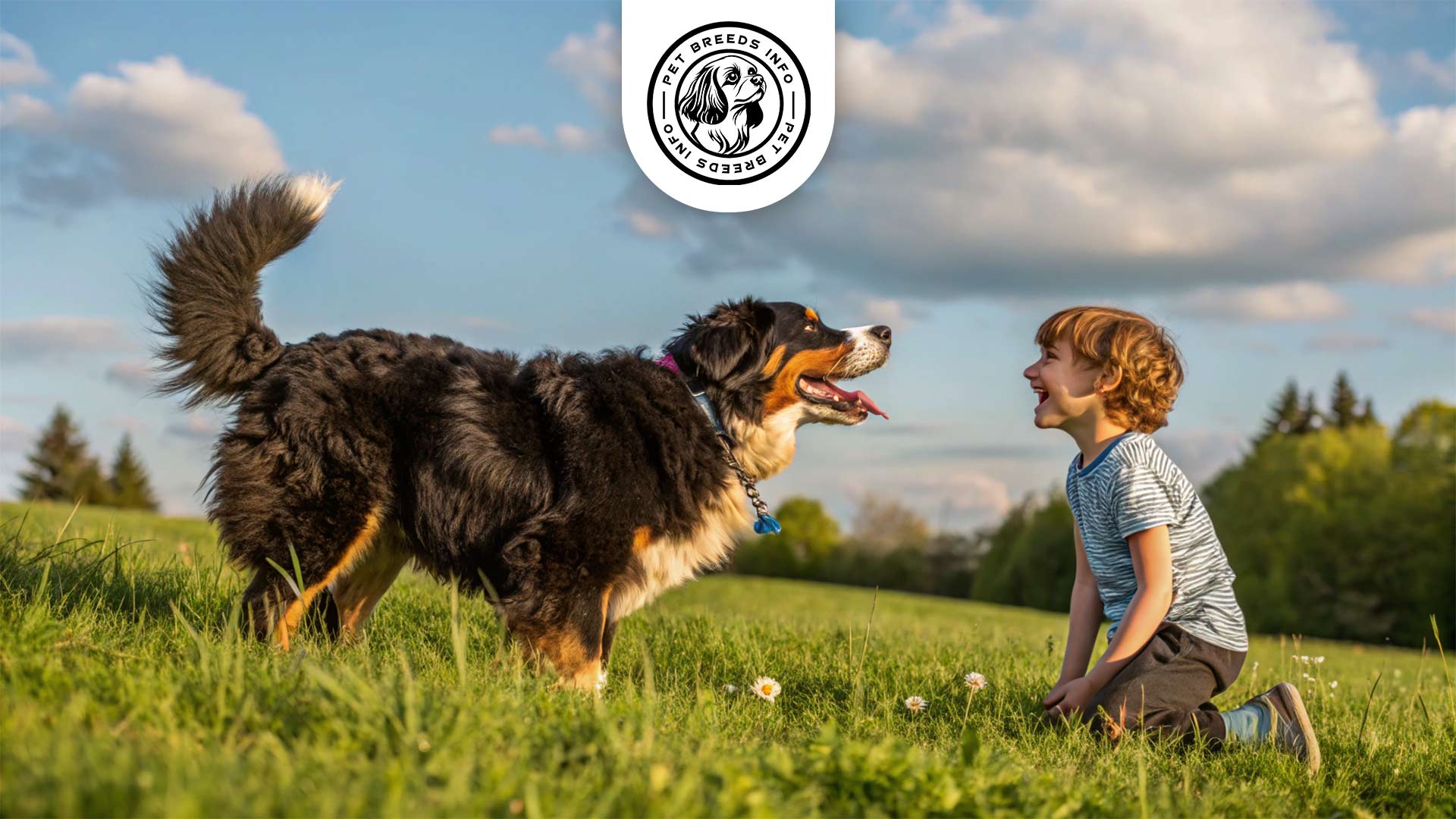
Price and Availability
The cost of a Bernese Mountain Dog puppy from a reputable breeder typically ranges from $1,500 to $3,500, depending on lineage, location, and breeder reputation.
When purchasing or adopting this breed, it is important to choose responsible breeders or adoption centers that prioritize health and ethical breeding practices. Rescue organizations may also have Bernese Mountain Dogs available for adoption at a lower cost.
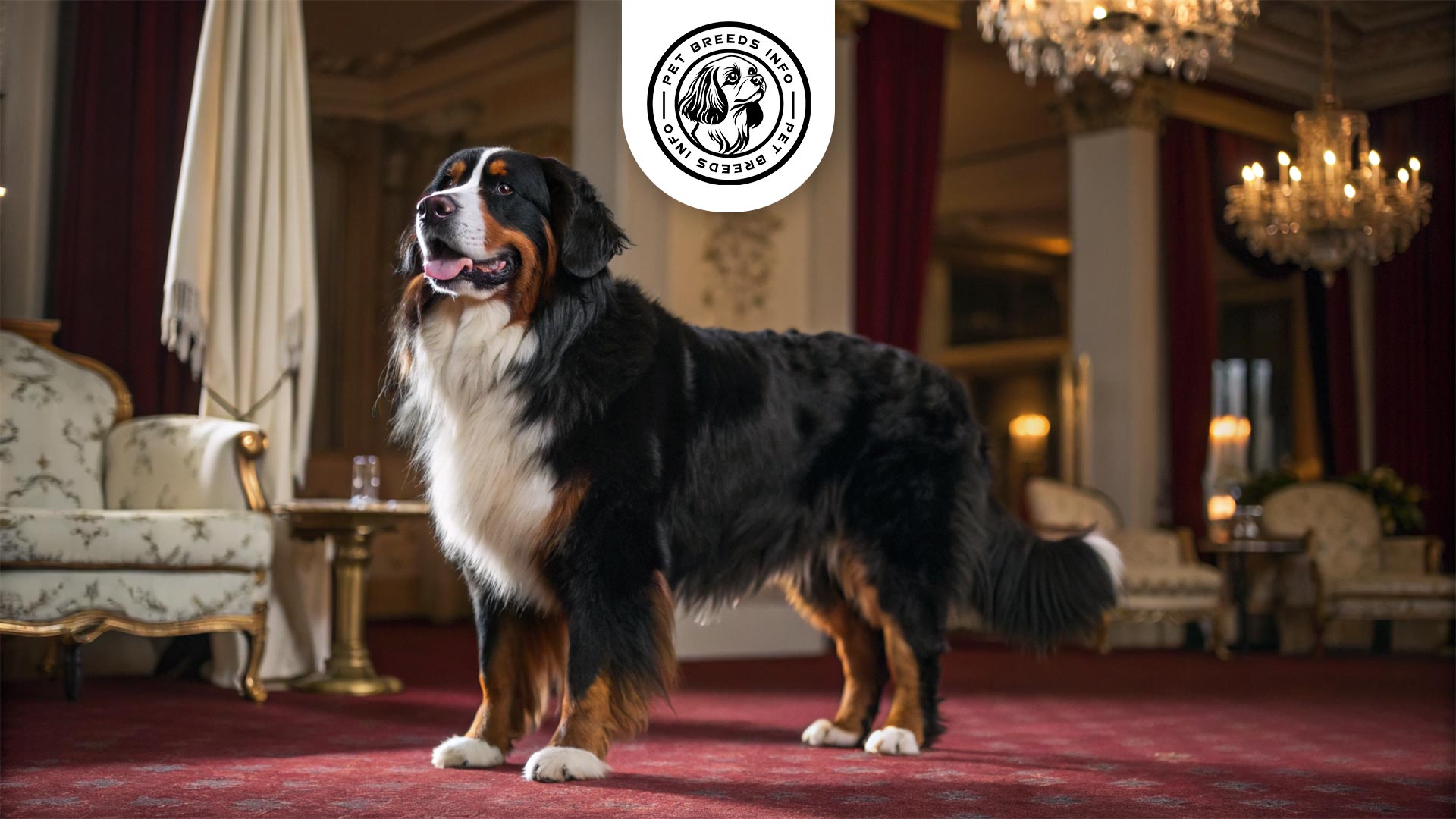
Conclusion and Final Thoughts
The Bernese Mountain Dog is a loving, intelligent, and loyal companion, making it an excellent choice for families, individuals, and active owners. However, its large size, grooming needs, and relatively short lifespan require careful consideration.
Ideally suited for homes with access to outdoor space and cooler climates, this breed thrives in environments where it receives proper care, companionship, and exercise.
Potential owners should be prepared for heavy shedding, regular training, and possible health challenges. With the right care and love, a Bernese Mountain Dog can become a cherished member of any family.
Read More: Bedlington Terrier Dog
FAQ
How big do Bernese Mountain Dogs get?
Bernese Mountain Dogs are a large breed. Males typically weigh between 80 to 115 pounds and stand 25 to 27.5 inches tall at the shoulder. Females are slightly smaller, weighing 70 to 95 pounds and standing 23 to 26 inches tall.
What is the typical temperament of a Bernese Mountain Dog?
Bernese Mountain Dogs are known for their calm and affectionate temperament. They are intelligent and eager to learn, making them relatively easy to train. They form strong bonds with their families, are loyal and devoted, and are generally gentle and friendly, making them excellent with children.
What are the main care requirements for a Bernese Mountain Dog?
Bernese Mountain Dogs require daily exercise and regular brushing (at least two to three times a week) due to their heavy shedding. They are better suited for cooler climates and need attention to grooming, including nail trimming, ear cleaning, and dental care.
What is the average lifespan of a Bernese Mountain Dog and are there common health issues?
The average lifespan of a Bernese Mountain Dog ranges from 7 to 10 years. They are prone to certain genetic health conditions, including hip and elbow dysplasia, progressive retinal atrophy, heart diseases, and have a higher risk of cancer compared to some other breeds.
